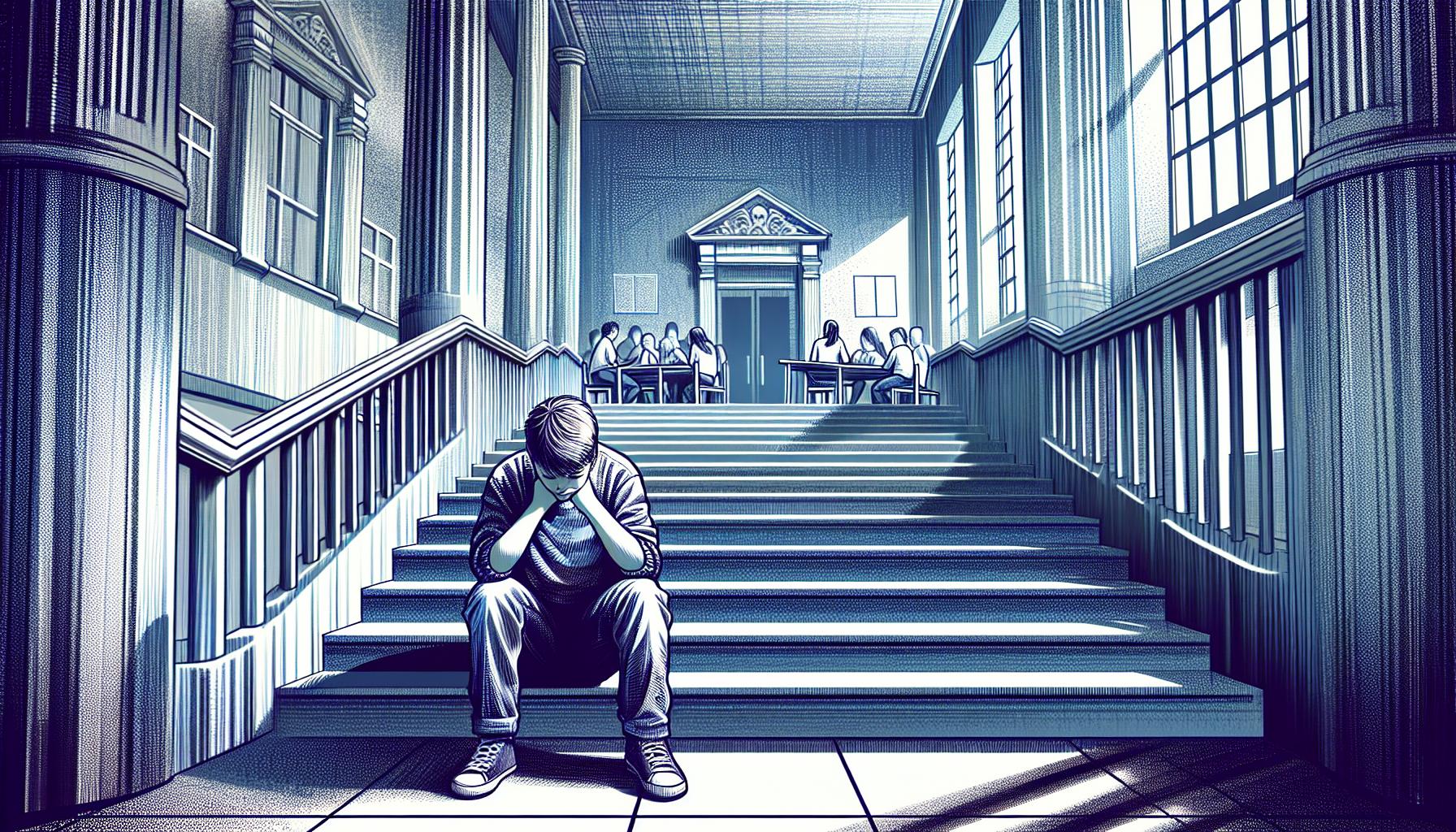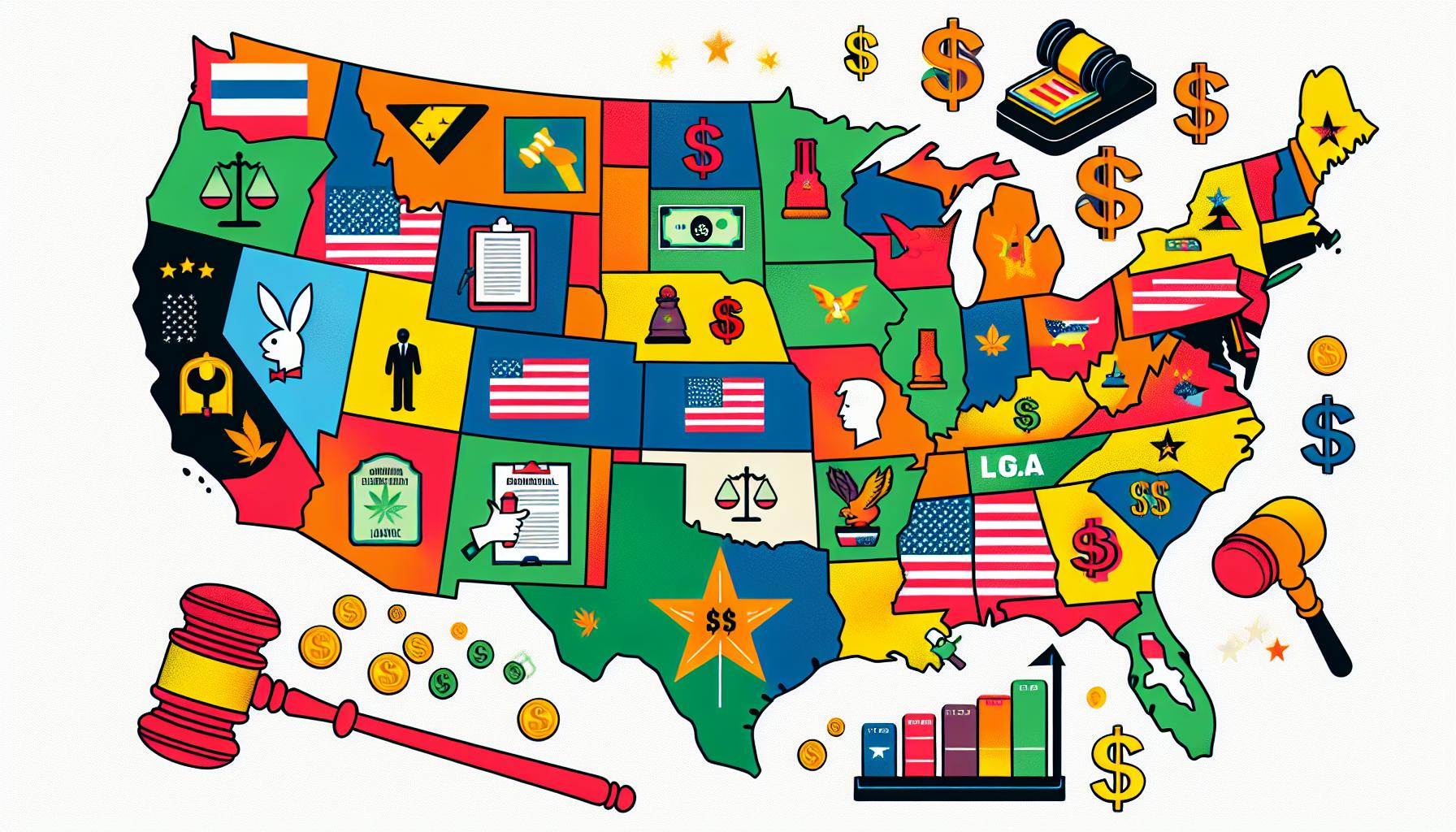Gambling can be an exciting thrill, but if you’re under 18, it comes with serious risks and consequences. Many young people don’t realize that gambling laws are stringent and getting caught can lead to more than just a slap on the wrist. Whether it’s placing a bet online, participating in a poker game, or sneaking into a casino, the repercussions are significant.
From legal penalties to long-lasting impacts on your future, understanding what happens if you’re caught gambling underage is crucial. In this article, I’ll break down the potential legal issues, social consequences, and the steps you can take to avoid falling into this trap.
Legal Consequences of Underage Gambling
Immediate Legal Actions
Authorities usually take swift actions when underage gambling is detected. Seizure of winnings is the first step; money or prizes won through illegal gambling are confiscated immediately. Fines often follow; minors caught gambling face monetary penalties typically ranging from $50 to $500, depending on the jurisdiction. Additionally, citations might be issued; these serve as legal documents mandating the minor to appear in juvenile court or another legal forum.
Long-Term Legal Implications
Being caught gambling underage affects future opportunities significantly. Criminal records are one of the most severe consequences; although juvenile records are often sealed, certain jurisdictions might treat repeated offenses more harshly, potentially impacting future job prospects and background checks. Education opportunities might also be compromised; colleges and universities frequently require disclosure of any criminal activity, which can affect admissions decisions. Furthermore, parent or guardian notifications lead to family legal troubles; involvement of parents or guardians often brings about additional legal issues, including potential scrutiny from child protective services.
Social and Personal Repercussions

Impact on Education and Career Opportunities
Getting caught gambling under 18 can negatively affect both education and career opportunities. Schools might suspend or expel students involved in illegal activities like gambling, causing academic disruptions. Colleges may reject applications if applicants have a criminal record related to gambling. Employers often perform background checks and view gambling offenses as trust issues, leading to disqualification from job opportunities. For example, roles in finance, government, and law enforcement typically require clean records.
Family and Social Relationships
Underage gambling can strain family and social relationships. Parents might lose trust in their child, leading to restrictions and increased supervision. Family members may face legal consequences if they are found to have facilitated or ignored the gambling activity. Friends often distance themselves to avoid getting involved in potential legal trouble, resulting in social isolation. This can further lead to emotional distress, creating a cycle of strained interactions and weakened support systems.
Comparative Analysis by State

Variation in Laws and Penalties
Laws governing underage gambling differ by state. In Nevada, underage gambling is a misdemeanor, with fines up to $1,000 and community service requirements. California imposes similar penalties but includes a possible jail term of up to six months for repeat offenders. Michigan treats underage gambling as a civil infraction, issuing fines up to $500 without jail time. Texas classifies it as a Class C misdemeanor, carrying fines but no jail time. States like New Jersey combine fines with mandatory gambling education programs for minors caught gambling.
Here’s a breakdown of penalties for underage gambling in different states:
| State | Penalty Type | Fine Up to | Additional Sanctions |
|---|---|---|---|
| Nevada | Misdemeanor | $1,000 | Community service |
| California | Misdemeanor | $1,000 | Possible six-month jail term |
| Michigan | Civil | $500 | No |
| Texas | Class C | $500 | No jail |
| New Jersey | Misdemeanor | $1,000 | Gambling education programs |
Case Studies: Real-Life Consequences
Real-life cases illustrate the variety of consequences for underage gambling. In Nevada, a 17-year-old was fined $800, assigned 50 hours of community service, and had to attend a youth counseling program after being caught gambling at a casino. In California, a minor faced a first offense with a $700 fine but got a 30-day suspended sentence for a second offense, emphasizing the state’s strict approach. In Michigan, an underage gambler received a $300 fine and was required to attend a one-day educational seminar. These case studies show how state-specific penalties impact young individuals differently, affecting their finances, educational opportunities, and sometimes even their social lives.
Preventative Measures and Alternatives

Educational Programs and Awareness
Educational programs inform young people about the risks of underage gambling. Schools often partner with local organizations to provide seminars, workshops, and campaigns that highlight the legal, social, and personal consequences. In these sessions, experts share real-life stories and statistical data to show the seriousness of the issue.
Awareness campaigns may include posters, social media initiatives, and in-class discussions. These efforts aim to debunk myths about gambling, such as the belief that it’s an easy way to make money. By addressing misconceptions, these programs work to reduce the allure of gambling for underage individuals.
Parents also play a crucial role by discussing the topic at home. They can monitor their children’s online activities and encourage participation in educational events. When schools and parents collaborate, the message against underage gambling resonates more strongly.
Safe and Legal Alternatives for Youngsters
Young people looking for entertainment or thrills can explore several safe and legal alternatives to gambling. Sports and recreational activities such as basketball, soccer, and skateboarding provide excitement and opportunities for team building. Local community centers and schools often offer structured sports leagues and events.
Participating in clubs and organizations caters to various interests. Whether it’s chess, robotics, or drama, these groups help youngsters build skills and find new hobbies. Engaging in such activities not only fulfills their need for excitement but also promotes personal growth.
Volunteering is another productive alternative. It offers a sense of purpose and allows young people to contribute positively to their communities. From working at animal shelters to participating in environmental projects, there are numerous paths for meaningful engagement.
Online gaming can also be a safer option. Many games focus on skill-building, strategy, and social interaction without involving real money. Parents can ensure the chosen games have appropriate content and age ratings.
Conclusion
Understanding the risks and consequences of underage gambling is crucial for both young people and their families. The legal, social, and personal repercussions can be severe and long-lasting. It’s essential to be aware of the variations in state laws and the importance of preventative measures. By focusing on positive and constructive activities, we can help steer young people away from the pitfalls of underage gambling and towards a brighter future. Let’s ensure that the thrill of entertainment doesn’t come at the cost of their well-being and future opportunities.
Frequently Asked Questions
What are the legal consequences of underage gambling?
Underage gambling can lead to legal penalties, including fines and possibly a criminal record, which can impact future opportunities.
How does underage gambling affect education and career prospects?
Underage gambling can disrupt education through school sanctions and lead to college rejections and job disqualifications, affecting career prospects.
What are some social and family repercussions of underage gambling?
It can strain family relationships due to loss of trust and potential legal issues. It may also lead to distancing from friends, social isolation, and emotional distress.
How do underage gambling laws vary across different states?
Laws and penalties for underage gambling vary by state, with differences in fines, jail terms, and additional sanctions.
What preventative measures can help mitigate underage gambling?
Preventative measures include educational programs, awareness campaigns, and parental monitoring and discussions about the risks.
Are there any safe and legal alternatives to underage gambling?
Yes, alternatives include engaging in sports, clubs, volunteering, and online gaming without real money involvement, providing fun and constructive activities.